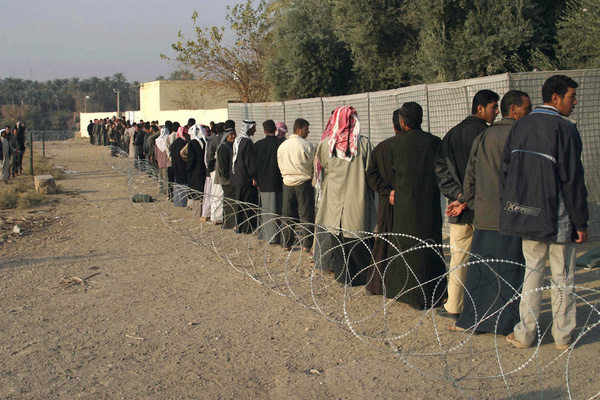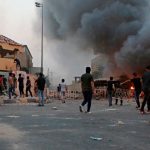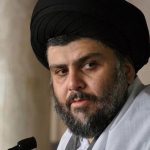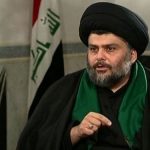by Wayne White
Since 2005, Iraqis have voted in four parliamentary elections yearning for decisive positive change. In three of those elections, popular hope for more effective governance and a decline in violence were dashed with governments consumed by their ambitions and flawed policies. Indeed, elections often have seemed less important than the evolving situation on the ground. If current Prime Minister Nuri al-Maliki succeeds, as expected, in securing a third term after last week’s election, more disappointment probably lies ahead.
Through the premierships of Iyad al-Alawi, Ibrahim al-Jafaari, and Maliki, Iraq’s senior leadership has included a large percentage of former exile opposition leaders along with prominent members of two long-standing Kurdish parties-cum-militias. This relative lack of turnover in terms of fresh political faces at the top has magnified the shortcomings of this narrow grouping.
The 2004 transition and a missed opportunity
Prior to the first election, a non-electoral political milestone giving Iraq its first post-occupation government triggered similar hope. In June 2004, the US-run Coalition Provisional Authority (CPA) under J. Paul Bremer passed formal sovereignty to an Iraqi Interim Government (IIG) with Iyad Allawi as interim prime Minister. With the Sunni Arab insurgency raging at the time, many Iraqis hoped this step away from American control would weaken the insurgency.
At that time, high expectations also were palpable within the Bush administration. Yet, as the head of the State Department’s Iraq intelligence team, I warned such optimism was unfounded. In fact, the new Iraqi political line-up differed little from the Shi’a and Kurdish-dominated Iraqi Governing Council that had worked with Bremer. Such hopes were dashed as the insurgency raged on ever more ferociously.
One big opportunity did present itself in 2004. Many leading Sunni Arab tribal leaders and insurgent commanders sought a ceasefire with American forces (by far their premier foe). Although promising to cease attacks against US and Iraqi targets and cooperate with US forces in countering a burgeoning al-Qaeda in Iraq (AQI), these leaders refused to recognize the IIG. Allawi, pressured by Washington, agreed to meet with the group. However, the IIG rejected the offer (despite otherwise being unable to end the insurgency).
Ironically, just over two years later, with ethno-sectarian violence soaring out of control, the US (despite opposition from another Iraqi prime minister) accepted the same deal unilaterally. Thus, the so-called Sunni Arab “Awakening” would be born, reducing violence substantially, but too late to save the tens of thousands who died during two intervening years of bloody fighting.
The first 2005 Iraqi Election
The next political way station toward what was hoped would be a measure of normalcy was the January 2005 election of an Iraqi National Assembly to name a prime minister and oversee the preparation of a permanent constitution. Iraqi voters went to the polls amidst an intense wave of hope.
Overall turnout was high, but polling in Sunni Arab areas was nil as most boycotted the vote. The bulk of employment in such areas had involved the military or Saddam Hussein-era government bureaucracy — disbanded by Bremer. Over a million Sunni Arabs had been members of the ruling Ba’th Party; Bremer banned such individuals from future employment. Unemployment was high and disaffection from the new Shi’a/Kurdish order intense. Seeing no real stake in the elections, many Sunni Arabs continued to support the insurgency.
Shortly after the election, the Bush administration requested that the heads of all major US intelligence agencies, plus British civilian and military intelligence arms, meet at CIA, along with one expert each, to sort out the bottom line. It clearly hoped for good news. Instead, I led off for the State Department’s Bureau of Intelligence & Research, pointing out the grim, unchanged dynamic on the ground. All present agreed.
As the Intelligence Community believed, in terms of fundamentals driving violence, the election had changed nothing. Once elected, the new National Assembly took two months to agree on a Prime Minister (Ibrahim al-Jaafari). Even though the constitution was completed later that year, setting the stage for the first election of a permanent parliament, insurgent and AQI terrorist violence continued unabated.
The second 2005 parliamentary vote
As with the election at the beginning of the year, the December 2005 vote for the Council of Representatives (COR) brought forth another wave of hope.
Still, the constitutional referendum preceding it had underscored the glaring sectarian divide that fueled the insurgency. In the Sunni Arab majority governorates of Salah ad Din, al-Anbar, and Ninawa, the constitution was opposed by 82%, 97% and 55% of voters (a rough reflection of the percentages of Sunni Arabs in those jurisdictions).
The results of the December parliamentary election showed far higher Sunni Arab participation, but were accompanied by Sunni Arab and secular Shi’a anger over allegations of fraud favoring Shi’a religious parties. The field of political lists was little changed from January. This time around, six months of bickering ensued before Nuri al-Maliki emerged as a compromise prime minister in April 2006.
Between two elections: 2005-2010
In February 2006, with the bombing of a revered Shi’a mosque shrine, violence spiked massively. Shi’a militias like firebrand cleric Muqtada al-Sadr’s “Mahdi Army” retaliated against Sunni Arabs, especially in Baghdad. “Sectarian cleansing” of much of the capital raged out of control; over a million Sunni Arabs fled westward for safety. This maelstrom also heavily damaged Iraq’s Christian community.
In late 2006, a desperate Bush administration finally decided to accept the deal in which Sunni Arab insurgents would cease attacks on US forces and fight alongside US Army and Marine units against AQI. Although by mid-2007, tens of thousands of insurgents had switched sides, Maliki & his mainly Shi’a supporters opposed the deal. Only in late 2008, under sustained US pressure and following considerable success involving Sunni Arab “Awakening” cadres, did Maliki reluctantly accept the arrangement, albeit only partially.
Also in 2008, with Sunni Arab resistance much reduced, Maliki, with US assistance, was able to address rampaging Shi’a militias — especially those controlled by Sadr. Badly beaten in southern Iraq and Baghdad, Sadr agreed to disarm most of his forces. During 2006-2008, however, the majority of the Sunni Arab population had been driven from the capital. By that point, many Sunni Arabs once hostile toward US forces had come to view US troops as their only reliable protection from Shi’a militias and rogue elements of the Iraqi security forces.
Nonetheless, according to the 2008 US-Iraqi Status of Forces Agreement, US troops withdrew to their bases in June 2009. At that point, insurgent, AQI and militia violence was the lowest since the 2003 invasion.
The 2010 parliamentary campaign and vote
In the lead-up to the March 2010 vote, Maliki seized upon the polarizing de-Ba’thification issue to firm up his electoral support within his Shi’a base. In the run-up to these elections, US Embassy cables from early 2010 say Maliki “directed the removal” of large numbers of “some of the highest quality personnel” from Iraq’s security organizations over links to the Ba’th Party as part of his “political gamesmanship.”
Almost 500 Sunni Arab (many secular or liberal) parliamentary candidates were also disqualified by an “Independent High Election Commission” stacked with Shi’a. Even Kurdish Iraqi President Jalal Talabani urged Maliki not to be “unjust” to candidates. However, few of the bans were reversed.
Sunni Arabs still voted hoping a new alliance under the secular Iyad Allawi might unseat Maliki. Even with the deck stacked in favor of Shi’a religious parties, Sunni Arab participation was far higher than in 2005, and Allawi scored well. Nonetheless, after 8 months of maneuvering, Maliki again was named prime minister in late 2010.
Years of retrenchment
Back in business, Maliki redoubled his efforts to amass personal power and marginalize the Sunni Arab community. He placed some crack Iraqi army units and police elements under his own control. He also employed unofficial security forces for extra-judicial skullduggery. This included attacks against local Sunni Arab leaders and the detention of prisoners in private holding pens.
Meanwhile, he hounded more Sunni Arabs out of key positions in government. In late 2011, for example, Maliki’s government charged Sunni Arab Iraqi Vice-President Tariq al-Hashimi with involvement in terrorism from “confessions” exacted from arrested bodyguards. Al-Hashimi fled to Iraqi Kurdistan in December 2011.
Maliki also dumped some of his commitments on Sunni Arab “Awakening” cadres (known as “Sahwas”). Promises to integrate them into Iraq’s security forces were only partly fulfilled. He even turned loosely trusted police units — and anonymous gunmen — against Sahwa leaders in some localities.
Since the US opposed this behavior, Maliki and his government dealt the US out of the Iraqi equation. Although a Status of Forces Agreement (SOFA) was concluded in late 2008 to keep a limited US troop presence in Iraq beyond the December 2011 withdrawal, Maliki’s government ultimately ruled out the retention of US bases in Iraq. Soon after, Maliki also rejected judicial immunity for any US troops and military advisors left behind. Thus the Obama administration had little choice but to withdraw completely (clearly Maliki’s goal: to free himself from American oversight).
Maliki’s face-offs with his Kurdish coalition allies led to the Kurdish refusal to turn over Tariq al-Hashimi. Disputes over oil export agreements and territory as well as the Kurdish Regional Government’s (KRG) concern over Maliki’s growing personal power also darkened the period between the 2010 and 2014 elections (despite Maliki’s agreement with the Kurds to do the opposite to secure their support for his candidacy in 2010).
Meanwhile, violence on the part of a rebounding AQI had been rising. This culminated in January 2014 with the seizure of the Sunni Arab city of Fallujah by elements of the extremist Islamic State in Iraq and the Levant (ISIL) and local tribesmen. With Sunni Arab anger rising across northwestern Iraq because of grievances against Maliki, ISIL, like AQI, found a more favorable reception.
The 2014 election
Maliki has positioned himself to secure another term. Blaming his opponents for rising violence, Maliki made his familiar appeal for renewed unity after last month’s parliamentary election. With his reputation for sectarianism and duplicity, there is little chance he will change his spots. One could be more definitive in the negative, but Maliki’s inability to restore government control over Fallujah after 3 months of trying might force him to make at least some concessions to Iraq’s Sunni Arab community to weaken ISIL.
Plus ca change; plus ce le meme chose
For nearly 10 years since the transfer of sovereignty, Iraq has failed to evolve substantially toward an inclusive democracy, reduced sectarian tensions, a more diverse ruling elite, greater rule of law, and effective governance. Also, under Maliki there has been a drift toward authoritarianism.
In addition to the serious deficiencies described above, the Iraqi government remains largely dysfunctional in almost every sense: endemically corrupt, judicially partial, administratively inept, and non-transparent. Despite the day-to-day impact of such poor governance, it is somewhat surprising that many Iraqis have not become far more cynical toward their elections.
President Barack Obama recently praised “the Iraqi people” for voting again in their pursuit of a peaceful, unified and prosperous future. Perhaps the most baleful impact of Maliki’s sustained engagement in sectarian politics has been how it has prevented Iraq’s population from finding more common ground upon which to base a more coherent “Iraqi” popular identity, instead of one that is exclusively Shi’a, Kurdish, Sunni Arab, Turcoman, or Christian.
Photo: Guarded by a barbed wire fence, Iraqis line up to vote in the 2005 parliamentary election. Credit: American Forces Press Service






If this doesn’t convince anyone that the U.S. is run by idiots, I don’t know what will. The only thing I see, is the debt run up by all these adventures, while the death tolls for the civilian populations continue, making the weapons industry filthy rich, at the expense of the American taxpayer as far as the eye can see, and then some. Of course, revisionism is in vogue today, so blaming the various leaders in the war torn countries, instead of firing to people who designed these debacles. One thing is indisputable, they have given the term “Clusterfuck” a new permanent meaning, IMHO.
The piece skims over many benchmarks in Iraq’s democratic evolution, at the expense of accuracy. It took over 4 not 2 months for January 2005 parliamentarians to select Jaafari as PM. His time calculation for the eventual 2006 selection of Maliki as PM is also off. Importantly, unlike the Jan 05 polls, Dec 05 polls saw the crucial inclusion of Sadrist candidates in the Sistani-inspired UIA. Plus the KIU ran as a separate Kurdish party. Sadr had already agreed to impose a ceasefire on whatever elements of his decentralised Mahdi army in August 2007, not in 2008. The IHEC was absolutely NOT stacked with Shia. You mistake it for the Accountability and Justice or DeBaathing Cte.
Marc Lemieux